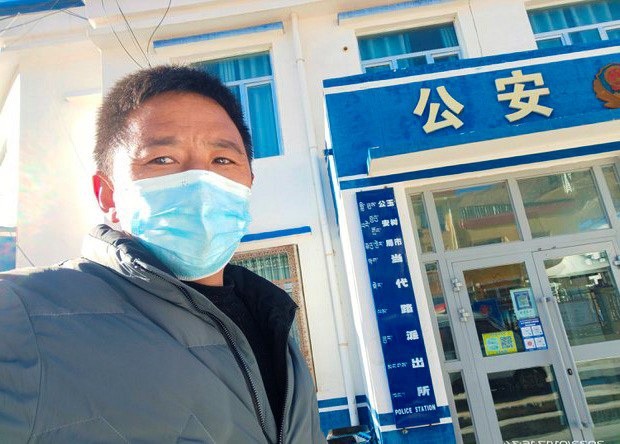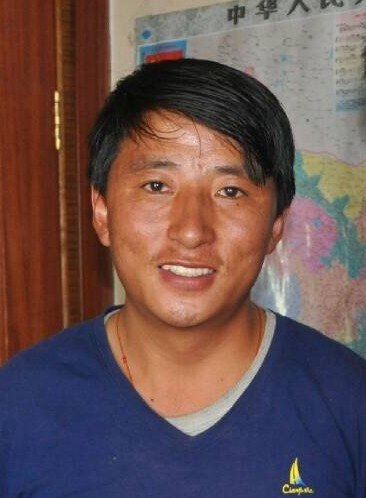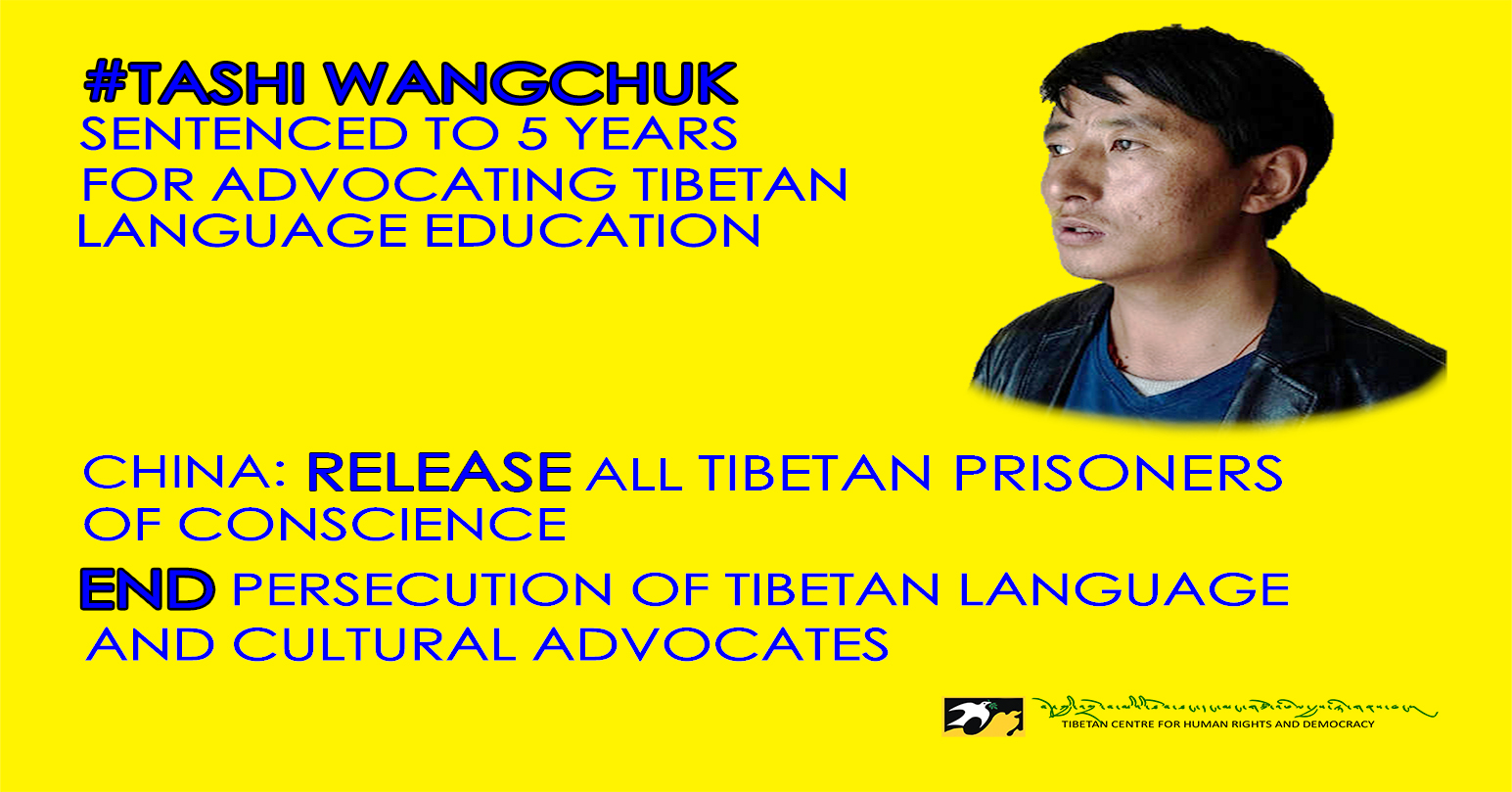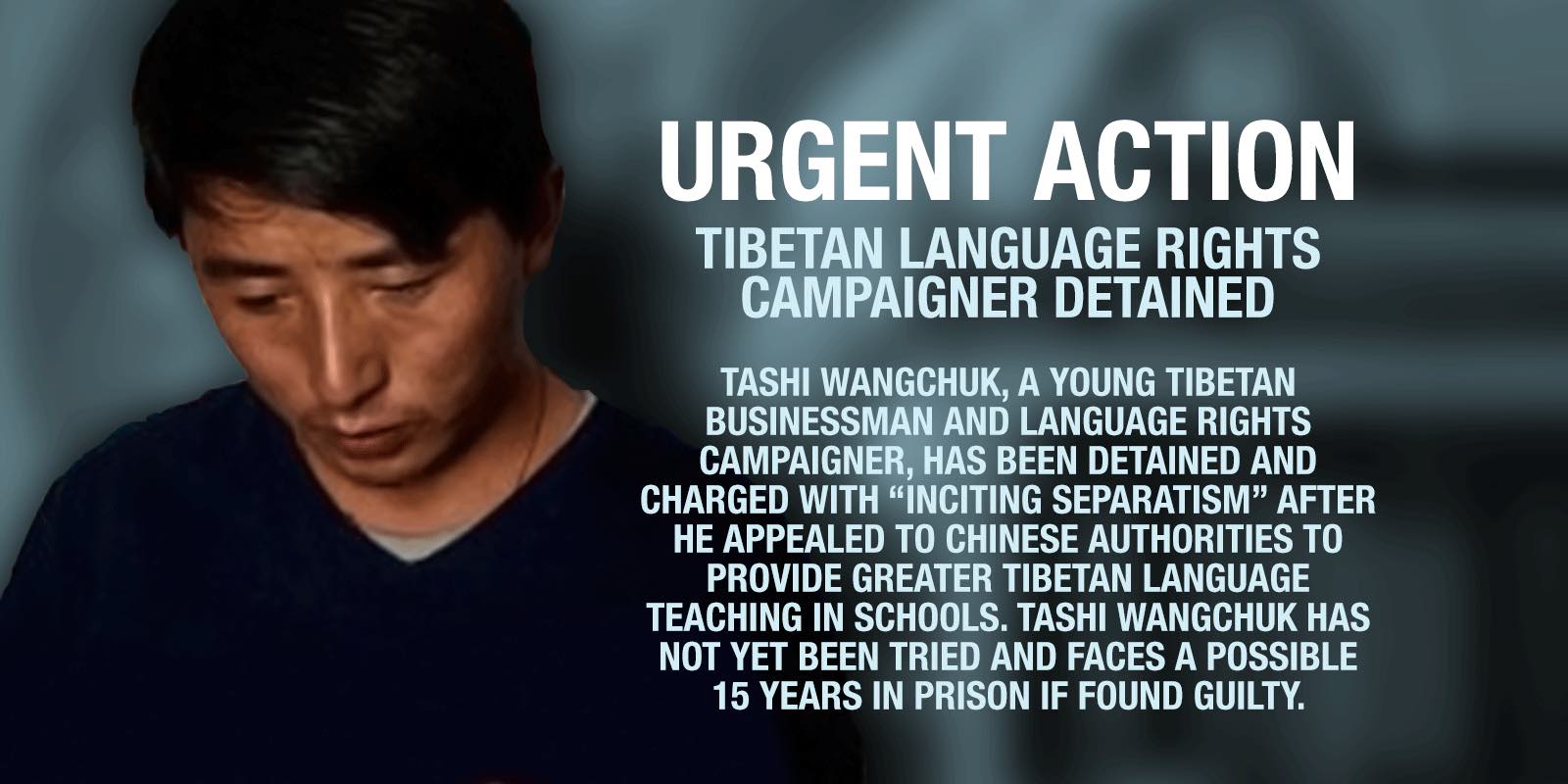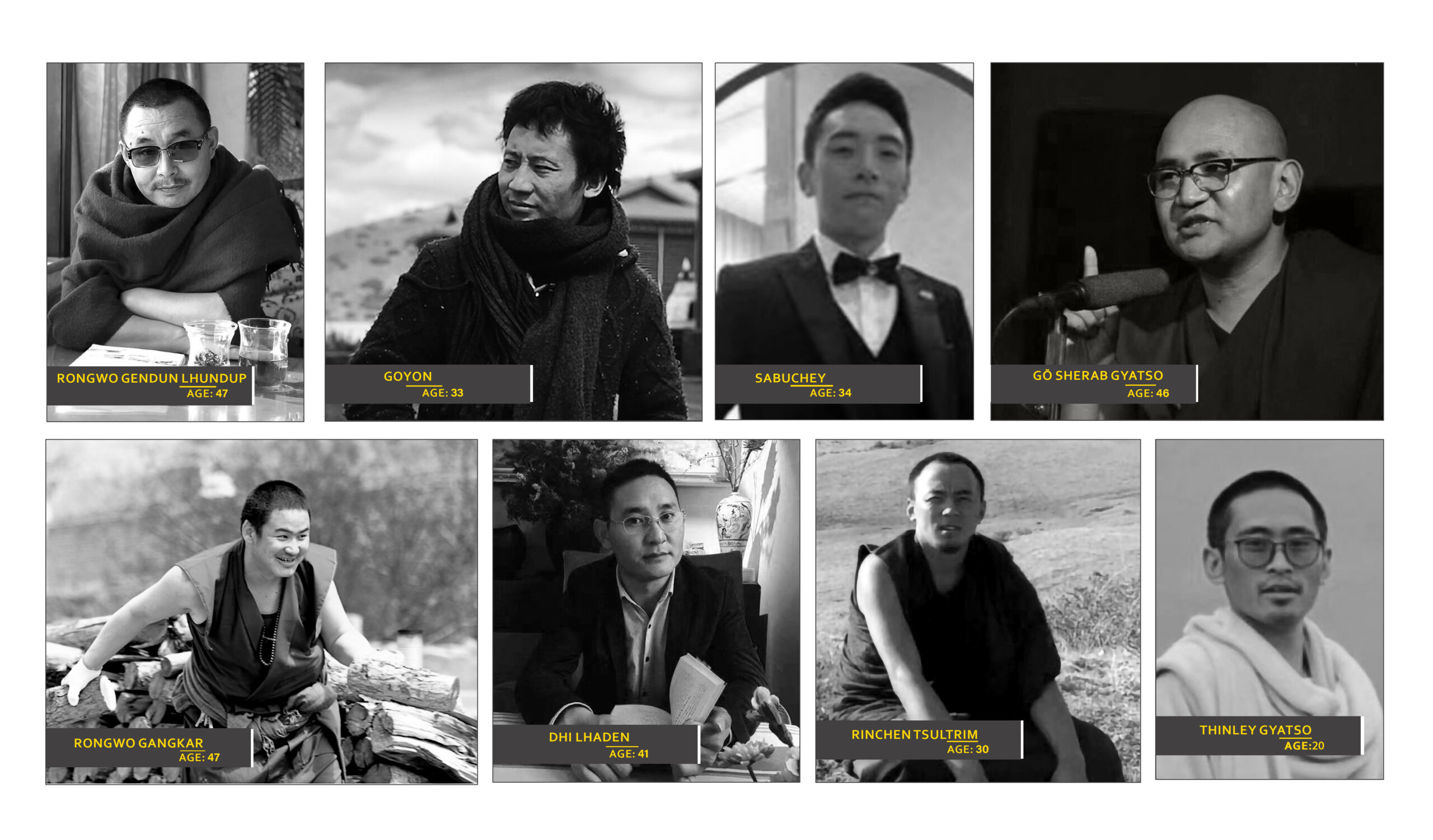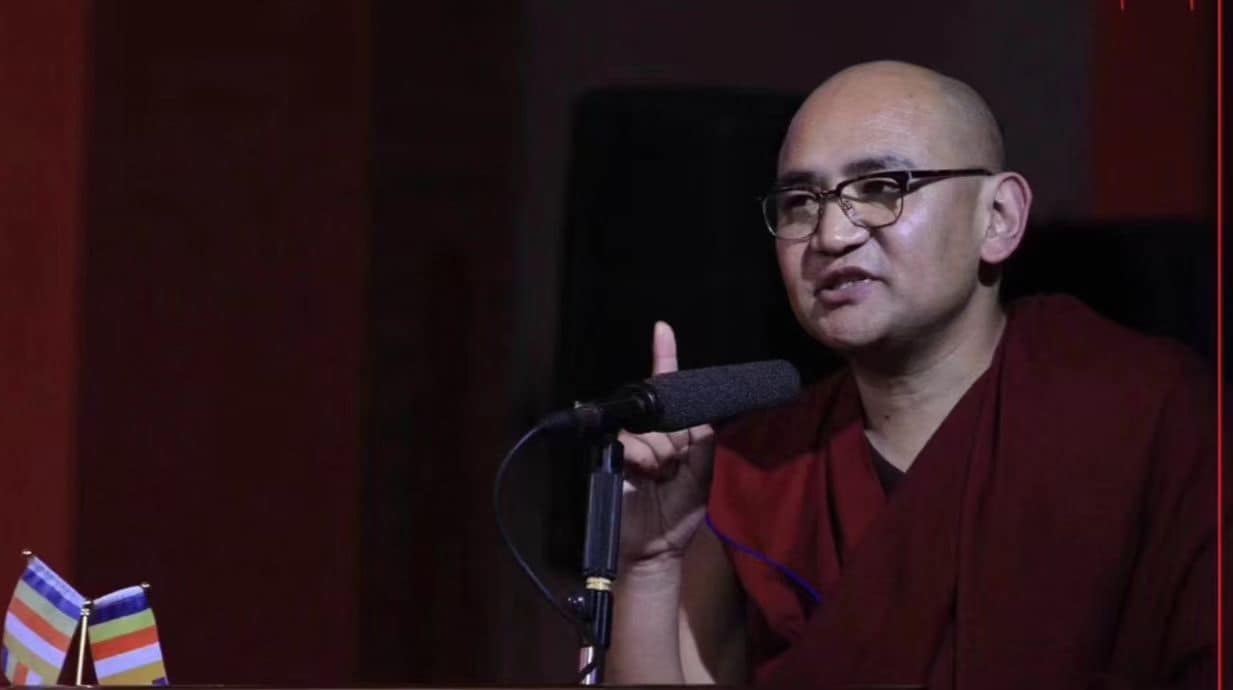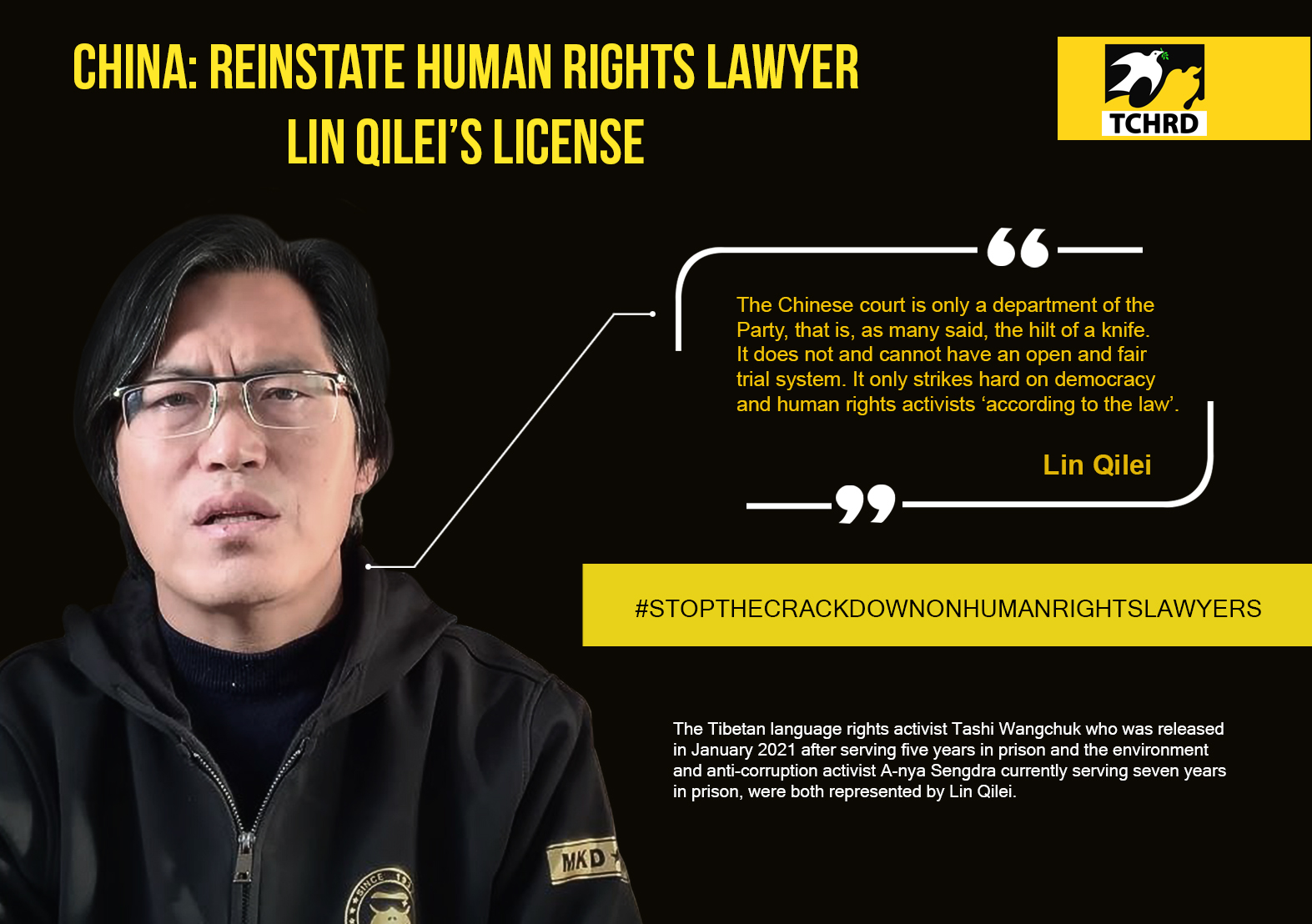The Tibetan Centre for Human Rights and Democracy (TCHRD) strongly condemns the continued persecution of the well-known Tibetan language rights advocate Tashi Wangchuk, who had been released from prison in 2021 after serving five years’ prison term on the trumped-up charges of “inciting separatism”.
Since his release from unjust imprisonment, Tashi Wangchuk has faced persistent restrictions and limitations on his movement and activities even as he continued to advocate for the promotion and protection of the Tibetan language.
The latest persecution faced by the Tibetan language rights advocate demonstrates that Chinese authorities will go to any lengths including engaging in mobster-style tactics to silence human rights defenders and activists.
On the evening of 19 August, while travelling from Sershul (Ch: Shiqu) County in Kardze (Ch: Ganzi) Tibetan Autonomous Prefecture, to Darlag (Ch: Dari) County in Golog (Ch: Guoluo) Tibetan Autonomous Prefecture, he was followed by a vehicle. Subsequently, local police issued an order preventing local hotels from accommodating him.



